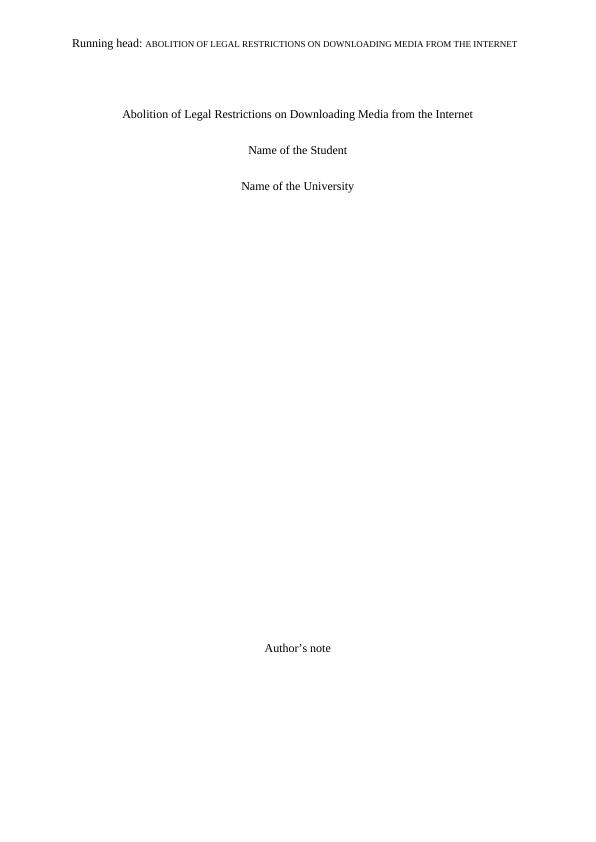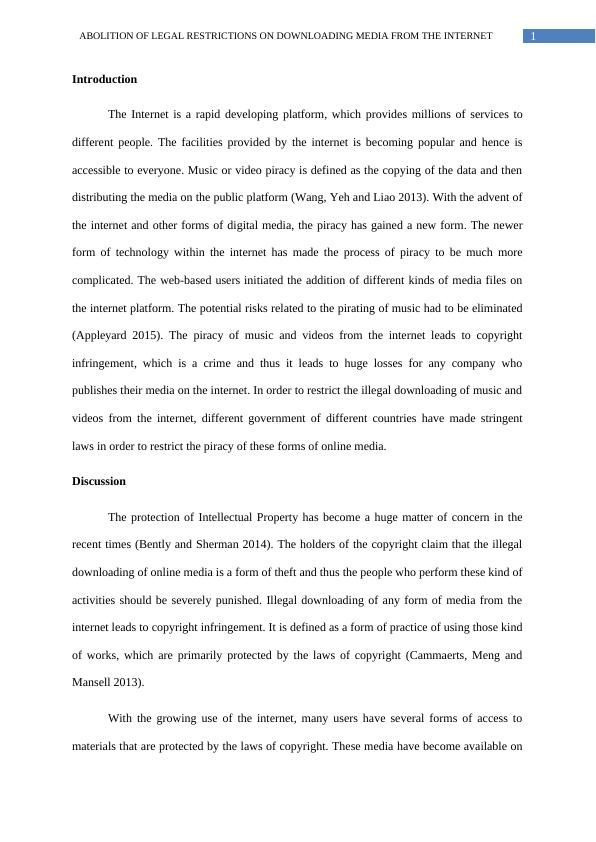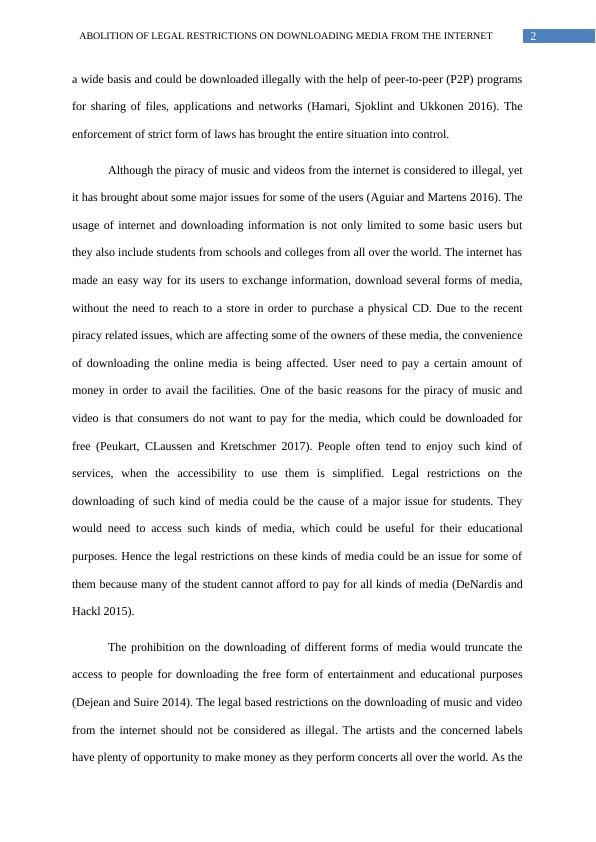Abolition of Legal Restrictions on Downloading Media from the Internet
9 Pages2870 Words261 Views
Added on 2023-06-10
About This Document
This article discusses the need for abolition of legal restrictions on downloading media from the internet. It highlights the benefits of freely available content and the impact of legal restrictions on students and artists. The article argues that legal restrictions should be revised to provide benefits for a large audience.
Abolition of Legal Restrictions on Downloading Media from the Internet
Added on 2023-06-10
ShareRelated Documents
End of preview
Want to access all the pages? Upload your documents or become a member.
Report on Business Ethical Issues - Desklib
|12
|2296
|410
Legal Restrictions on Downloading Music and Videos
|4
|771
|283
Impact of Digital Downloading on the Music Industry
|8
|1747
|125
Free Cultures - The idea of copyright
|5
|1405
|24
Rise of Internet Technology and Music | Report
|16
|6027
|315
Copyright Laws and How They Protect Intellectual Property
|4
|689
|426



